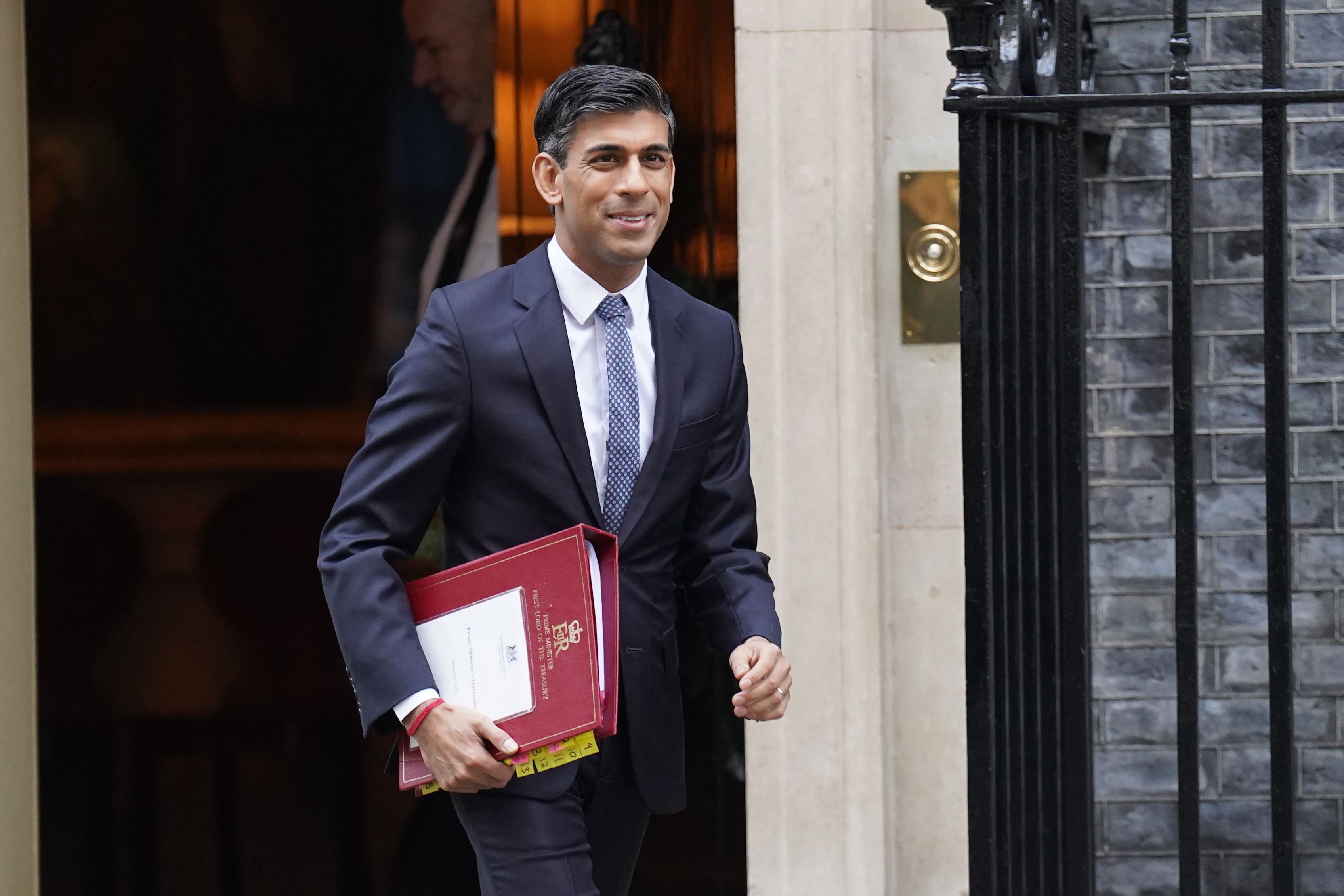Sunak does not rule out extending anti-strike laws to emergency service staff
The Prime Minister said ‘we’re looking at all options’ when asked about the scope of ‘tough’ new measures to limit the impact of strikes.

Your support helps us to tell the story
From reproductive rights to climate change to Big Tech, The Independent is on the ground when the story is developing. Whether it's investigating the financials of Elon Musk's pro-Trump PAC or producing our latest documentary, 'The A Word', which shines a light on the American women fighting for reproductive rights, we know how important it is to parse out the facts from the messaging.
At such a critical moment in US history, we need reporters on the ground. Your donation allows us to keep sending journalists to speak to both sides of the story.
The Independent is trusted by Americans across the entire political spectrum. And unlike many other quality news outlets, we choose not to lock Americans out of our reporting and analysis with paywalls. We believe quality journalism should be available to everyone, paid for by those who can afford it.
Your support makes all the difference.Rishi Sunak is not ruling out extending “tough” new anti-strike laws to prevent walkouts by emergency service workers such as nurses.
The Prime Minister said “we’re looking at all options” when asked about the scope of the legislation to limit the impact of strikes, but declined to give details.
Long-delayed legislation to ensure minimum service levels on the transport network during industrial action could be widened to other public services including emergency services.
Mr Sunak’s main priority was to “protect lives and minimise the disruption” of the growing wave of industrial action sweeping the country, he said.
My priority is to always be reasonable – and that’s what we’re going to continue to do – but also to make sure we protect lives and minimise the disruption to people’s lives
Royal Mail workers were on strike on Friday, joining nurses, paramedics, rail workers and Border Force officials in walkouts over jobs, pay and conditions this month.
Mr Sunak said “we’re looking at everything right now at pace” when asked about timings and details of measures, which are unlikely to be in place by Christmas.
Speaking during a visit to an RAF base in Lincolnshire, the Prime Minister said: “I’m not going to get into details now, we’re looking at all options.
“But what I can say is my priority is to always be reasonable – and that’s what we’re going to continue to do – but also to make sure we protect lives and minimise the disruption to people’s lives.”
Downing Street later declined to provide more clarity on the timing of the new measures.
A No 10 spokesman told reporters: “The minimum service legislation is in Parliament. It’s for the Leader of the House to set out the timeline for that to progress through Parliament.”
Mr Sunak appeared to rule out meeting union demands for pay rises for public sector workers in order to head off strikes before the end of the year.
Challenged over whether the Government could do anything to avert the action, he said: “What I’m not going to do is ask ordinary families up and down the country to pay an extra £1,000 a year to meet the pay demands of the union bosses. That wouldn’t be right and it wouldn’t be fair.”
Thousands of soldiers have been preparing to cover for ambulance crews, border staff and other striking workers, prompting complaints from the military that they were being forced to give up Christmas.
The Prime Minister said the nation should be grateful to army personnel for easing some of the strain.
“We’re here at an RAF base today. I had the opportunity to say thank you to some of our armed forces personnel because many of them are going to miss Christmas to help us deal with the disruption from strikes, whether that’s manning border posts or driving ambulances, and we all owe them an enormous debt of gratitude.”
It is up to railway companies and not the Government to prevent overcrowding on trains on strike days over the festive period, No 10 suggested, directing people to Network Rail to find out what they can “expect”.
“DfT (Department for Transport) will obviously work closely with Network Rail, but it’s for them to devise the timetable,” the spokesman said.